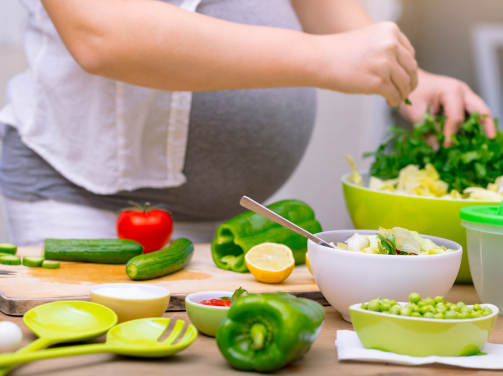Nutritional program for all postpartum women
Over the past 30 years, hundreds of women have told me that they feel that their current health problems begin shortly after the birth of their child. The child may have been her first or fifth, and he may now be a teenager or even an adult, but the mother remembers the onset of her symptoms as if it were yesterday.
Nutritional program for all postpartum
Symptoms that usually appear between the first and twelfth months of postpartum vary considerably from mother to mother. The most common are depression, chronic fatigue, insomnia, anxiety, lack of self-confidence, loss of libido and passion, muscle and joint pain, unhealthy skin and hair, digestive disorders, bladder problems, heart disease, asthma and a range of disturbing emotions and mood swings. A woman may be perplexed, frustrated or even embarrassed when she reveals symptoms that have plagued her for years. She may have shared these self-observations with the doctors, only to find that they did not deserve to be recognized or comforted by her doctor. Any attempt on his part to link the birth of one of his children to these symptoms could be met with skepticism or ignored. Yet she cannot get rid of the feeling that something in this particular birth triggered the decline of her health.
His observations have validity and merit. What most general practitioners do not fully consider is that a baby's body is formed and composed entirely of nutrients donated by the mother's body. The child's brain, eyes, muscles, bones, organs, glands, nerves, skin, tissues and fluids are made up entirely of nutrients taken from the mother's blood via the placenta.
Nutritional program
In case of lack of vital nutrients, the mother's body is the first to be deprived of it because the development of her baby is Mother Nature's priority. All mothers must consciously replenish their lost nutritional and energy reserves during the postpartum period. If this is not done, they may spend the rest of their lives wondering why "they don't feel like they used to feel since the baby was born"."
The energy needs associated with the care of a newborn can further drain and deplete the mother's nutrient reserves, especially if she is breast-feeding and sleep-free. If a woman has lost a lot of blood while giving birth, it is even more important to replenish the nutritional components of the blood. Women who undergo caesarean section must also replenish their nutrient reserves; not only did they become mothers, but they had to undergo major surgery in the process. Women who lose a lot of blood during childbirth and do not restore key nutrients may suffer from dizziness and nagging headaches, as well as extreme fatigue, insomnia, anxiety and depression.
A new mother also faces the stress of integrating a new baby's intense needs into her lifestyle, while caring for her partner and possibly other children and returning to work. All these responsibilities that women - and those who care for them - have taken for granted for millennia require high-quality nutrients. Our food supply currently contains only half of the nutrients that food contained in the 1940s due to nutrient depletion in our soil. This makes it very difficult, if not impossible, for a mother to fully replenish the nutrient reserves her body has donated to make her baby's body solely from the food she eats. Eating highly refined and processed "waste" foods further depletes vital nutrients, increasing the need to replenish postnatal nutrients.
Every physiological process in the human body depends on nutrients. The most important time to consciously replenish postpartum nutrient reserves begins immediately after delivery and extends up to 24 months after delivery. The absence of this period often opens the door to chronic health problems that can last for decades.
Nutritional program for all postpartum women
Home »
Advice doctor »
Be amazing »
be feeling safe »
Being Safe »
feel safe »
Feeling Safe »
Feeling Safe Versus Being Safe »
Fitness nutrition »
Healt safe »
Health care »
News »
Safe »
Nutritional program for all postpartum women



0 comments:
Post a Comment